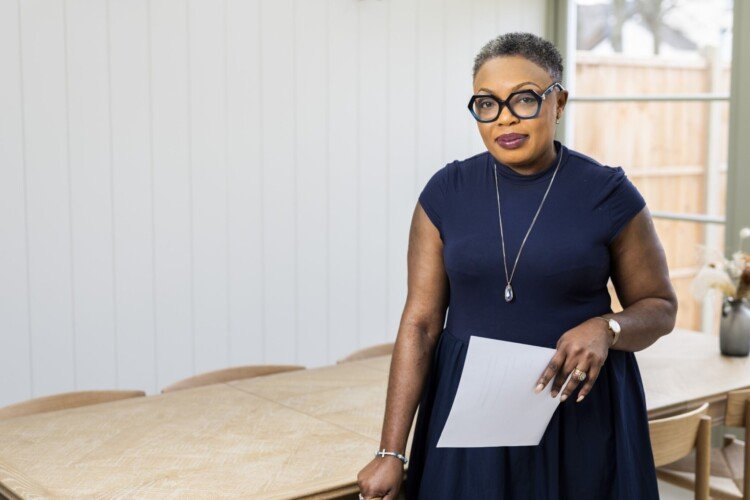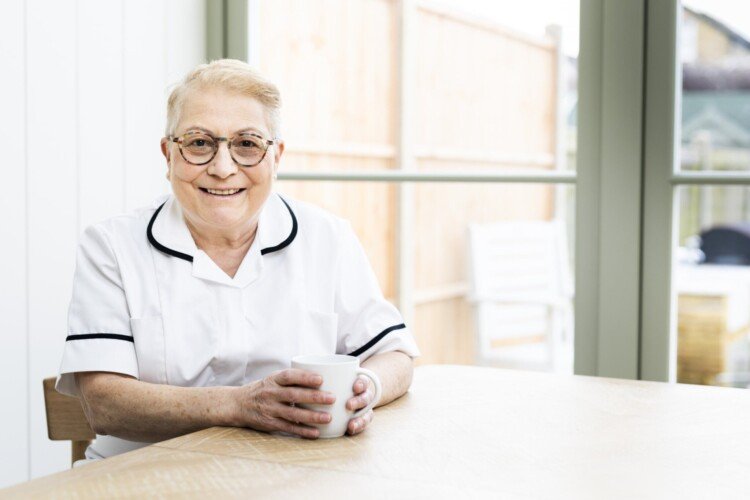Breast cancer survivors join call to save lives in national campaign
Breast cancer survivors from South-east London are raising awareness of the importance of screening appointments by giving their voices to a national health campaign.
The campaign, launched this week with a new advert across TV, radio and online, features ‘unofficial’ screening invitation letters from cancer survivors which share their experiences.
Philomena Ofodu, 53, from Bermondsey, Humaira Sabahat, 50, from Bexley, and Lindsay Batty-Smith, 67, from Peckham, have all shared their stories as part of the drive to encourage women to attend screenings.
A former patient at Denmark Hill’s King’s College Hospital, Ms Ofodu was diagnosed with breast cancer after attending a screening in September 2021.
She said: “When I received a letter inviting me for a mammogram appointment, I brushed it aside.
“Weeks later, I received a completely unrelated call from my GP asking me to come in immediately for a blood test.
“The urgency in his voice reminded me to put my health first, and prompted me to book the mammogram appointment I had been putting off.”

After attending the appointment, doctors found that Ms Ofodu had stage two breast cancer.
She said: “My cancer diagnosis changed my life, but because it was detected early, it was treatable.
“If I had not made that appointment, I might not be here now. I have the greatest gratitude to be part of this campaign, and to share my experience as a cancer survivor.”
NHS estimates suggest that if 80 per cent of those eligible attend their screenings next year, more than 7,500 additional breast cancers could be detected at an earlier stage, when they are more treatable.
Ms Sabahat was diagnosed with breast cancer and treated at King’s College Hospital after she attended a screening appointment in 2016.
She said: “I had no symptoms at all, and there’s no doubt in my mind that my screening appointment saved my life. Thankfully the cancer was caught in a very early stage, and I am now in remission.
“If I hadn’t attended my appointment, I might not be here today, so it’s a privilege for me to be part of this campaign, and to help save lives.”
The campaign comes off the back of a new survey of 2,000 women which showed almost a quarter said they would not attend a screening if they didn’t already have symptoms like a lump.

Around 21 per cent said that embarrassment at being topless in front of someone would prevent them from attending.
Ms Batty-Smith has been both a radiographer and a patient at King’s, having been diagnosed and successfully treated for breast cancer following a mammogram.
She said: “My breast screening appointments are my reassurance that all is well and I’m still cancer-free, but many women understandably have anxiety about attending their appointment.
“That’s why this campaign is so important. The more women we can encourage to come along to their screening appointments, the more lives could be saved.
“Breast screening is quick, efficient, and performed by highly trained, specialised professionals. I’m so proud to be able to represent Team King’s and the community through this campaign.”
The three South Londoners appear alongside celebrities including Newsnight anchor Victoria Derbyshire, broadcaster and presenter Julia Bradbury, and Strictly Come Dancing judge Shirley Ballas, who all share their stories of cancer in a series of videos for the campaign.
Francesca Fiennes, health promotion specialist in the South-East London Breast Screening Programme, said: “Philomena, Humaira and Lindsay are a true inspiration; they have all worked extremely hard to correct common misconceptions around breast screening, encouraging women in their local community to attend these life-saving appointments.”
Pictured top: Humaira Sabahat from Bexley said she had no symptoms before she was diagnosed with cancer after a screening in 2016 (Picture: NHS England)
